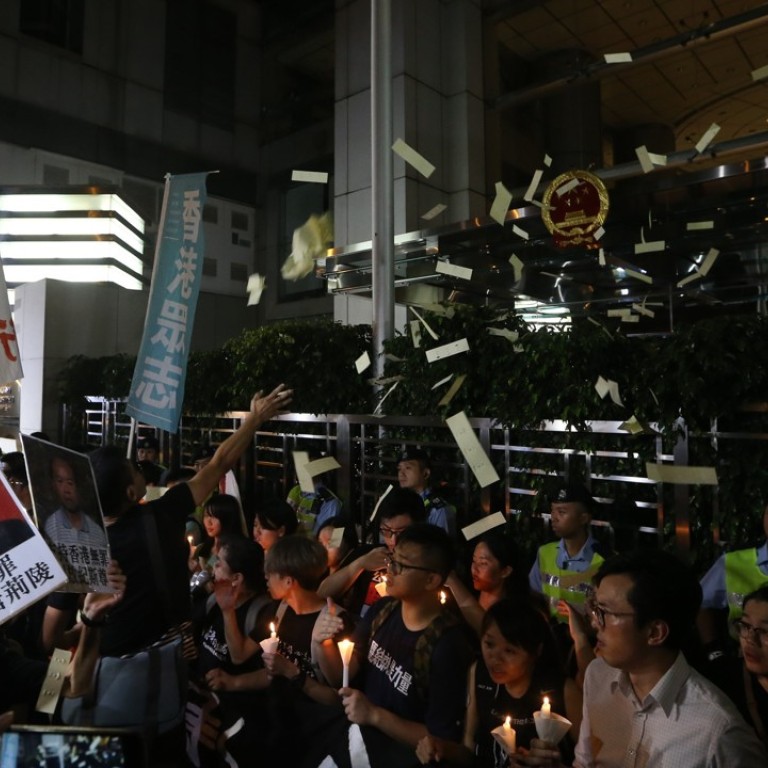
Protesters march to Beijing office in Hong Kong after Tiananmen vigil
Event led by localists and other pro-democracy activists peaceful but noisy
They were marching from Victoria Park in Causeway Bay to the central government’s liaison office, Beijing’s representative office in Hong Kong, located in Western district.
Leading the “post-vigil” march, which kicked off around 10.15pm, were Joshua Wong Chi-fung, secretary general of localist political party Demosisto; pan-democratic lawmaker “Long Hair” Leung Kwok-hung of the League of Social Democrats and the party’s chairman, Avery Ng Man-yuen; and Fastbeat Tam Tak-chi of People Power.
Members of the tertiary student group Student Fight For Democracy also joined.
The protesters planned at the liaison office to demand the release of political dissidents and human rights lawyers.
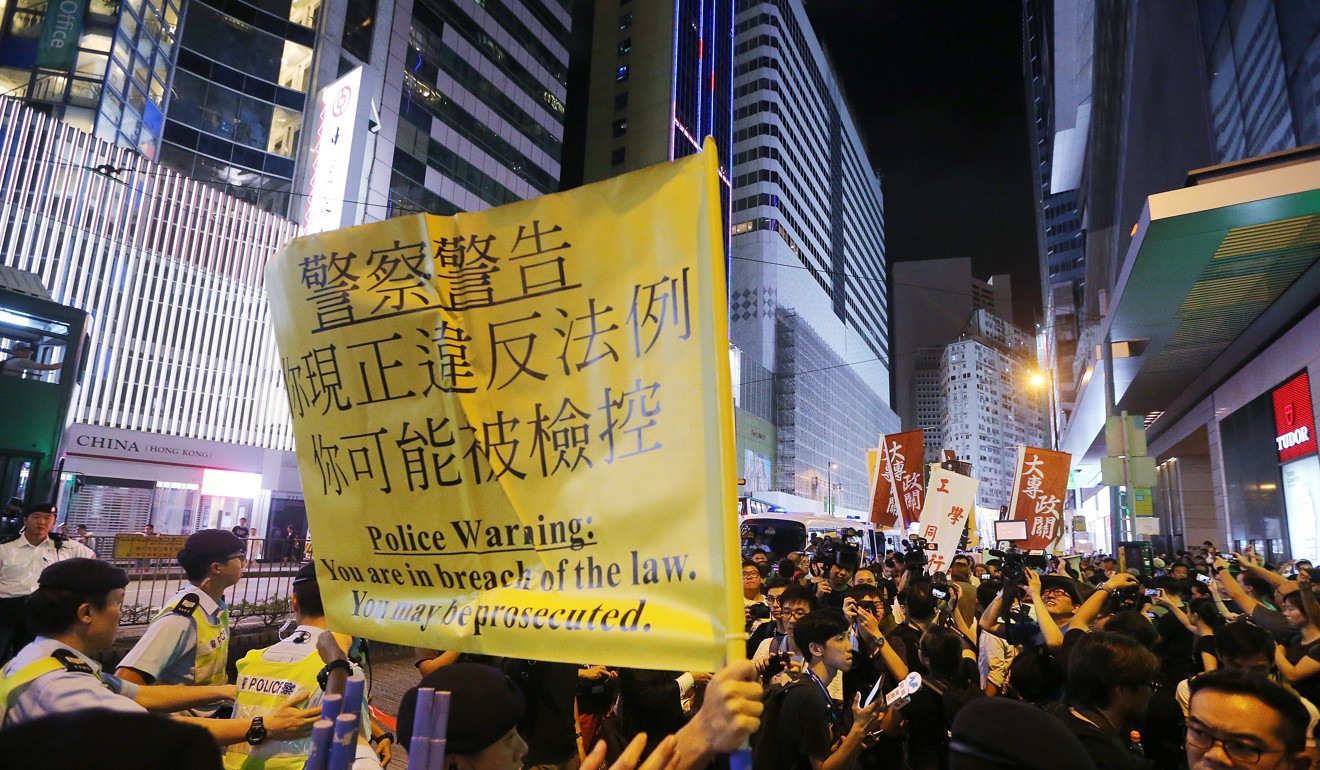
As they marched, they chanted slogans such as “Vindicate the democratic movement of 1989!” and “It’s no crime to defend civil rights!” They also invoked individual dissidents by shouting “Release Liu Xiaobo now!” and “Stop Liu Xia’s house arrest now!”
Liu Xiaobo was sentenced to two years in jail for his participation in the Tiananmen Square protests in 1989. He later served three years in a labour camp for having criticised Beijing’s one-party system.
In 2008, Liu was a co-author of Charta 08, a manifesto advocating the gradual shifting of China’s political and legal system towards democracy. In 2009, he was arrested and sentenced to 11 years in jail.
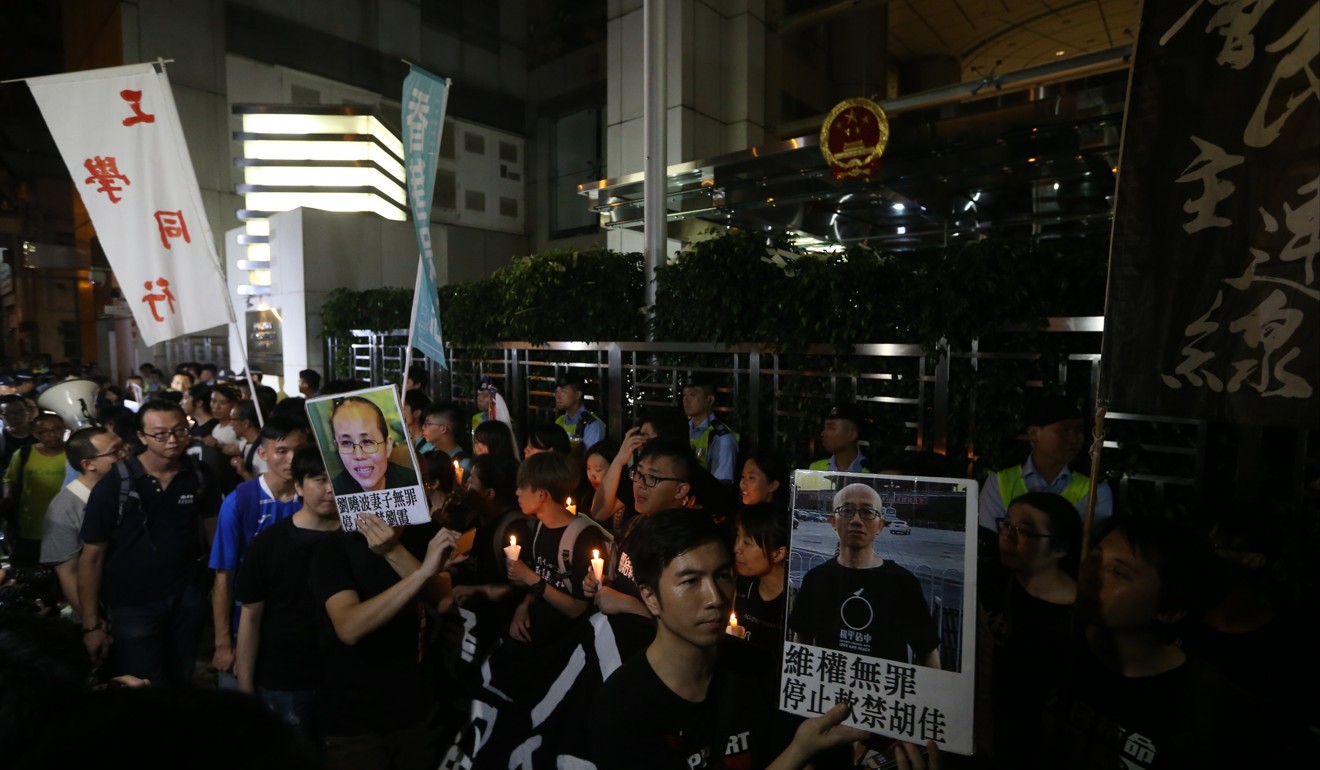
In 2010, Liu was awarded the Nobel Peace Prize. His wife, Liu Xia, has since been under house arrest and surveillance by the central government.
Before Sunday night’s march kicked off, a confrontation nearly erupted between activists leaving Victoria Park and police. Officers warned the protest was illegal and could result in criminal prosecution.
March organisers did not apply for a police permit to stage the event, claiming it was their civil right to hold such a protest.
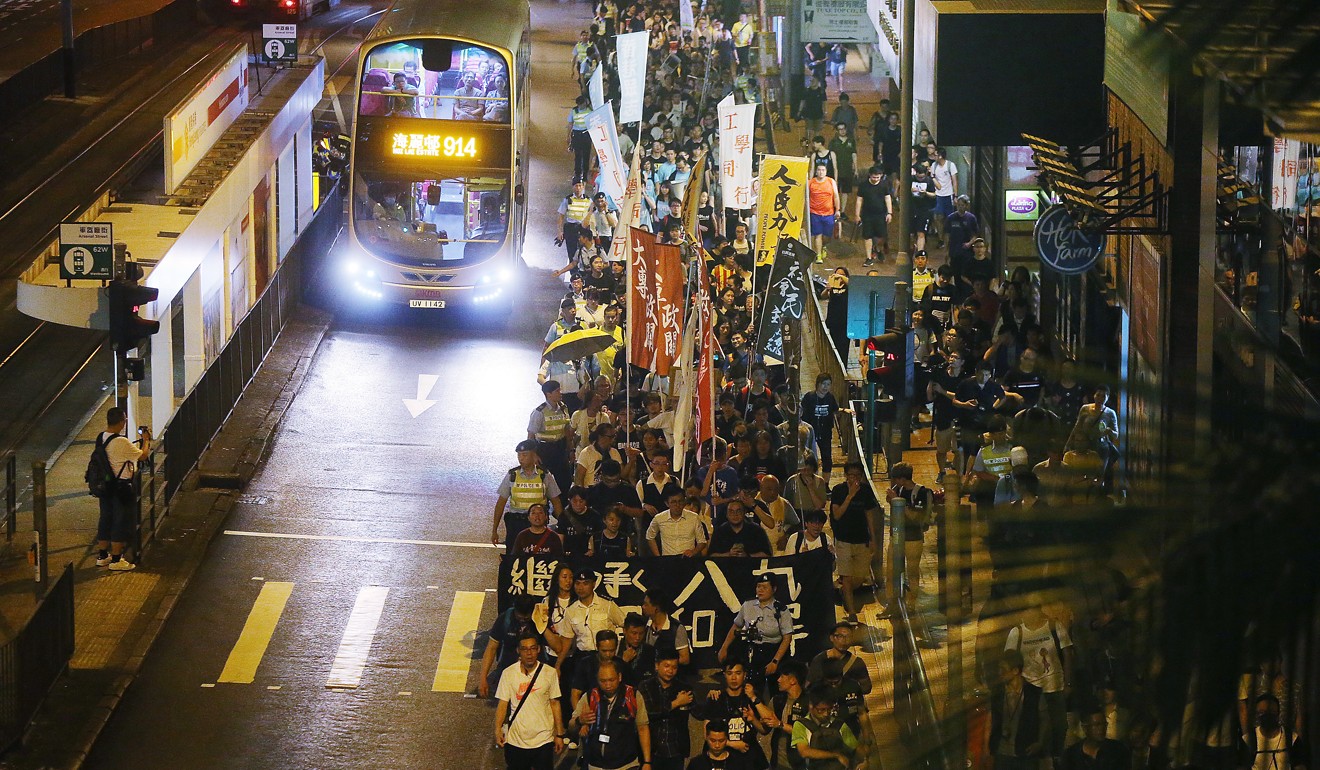
But some march participants spilled onto Hennessy Road, blocking two lanes of the major thoroughfare in Causeway Bay and jamming traffic. Police eventually closed one of the lanes for the marchers.
By 11.30pm the march was still proceeding, with the head of the procession reaching Central. The event was largely peaceful, albeit noisy.
After walking more than two hours from Victoria Park, the marchers arrived at the liaison office at about 12.25am Monday.
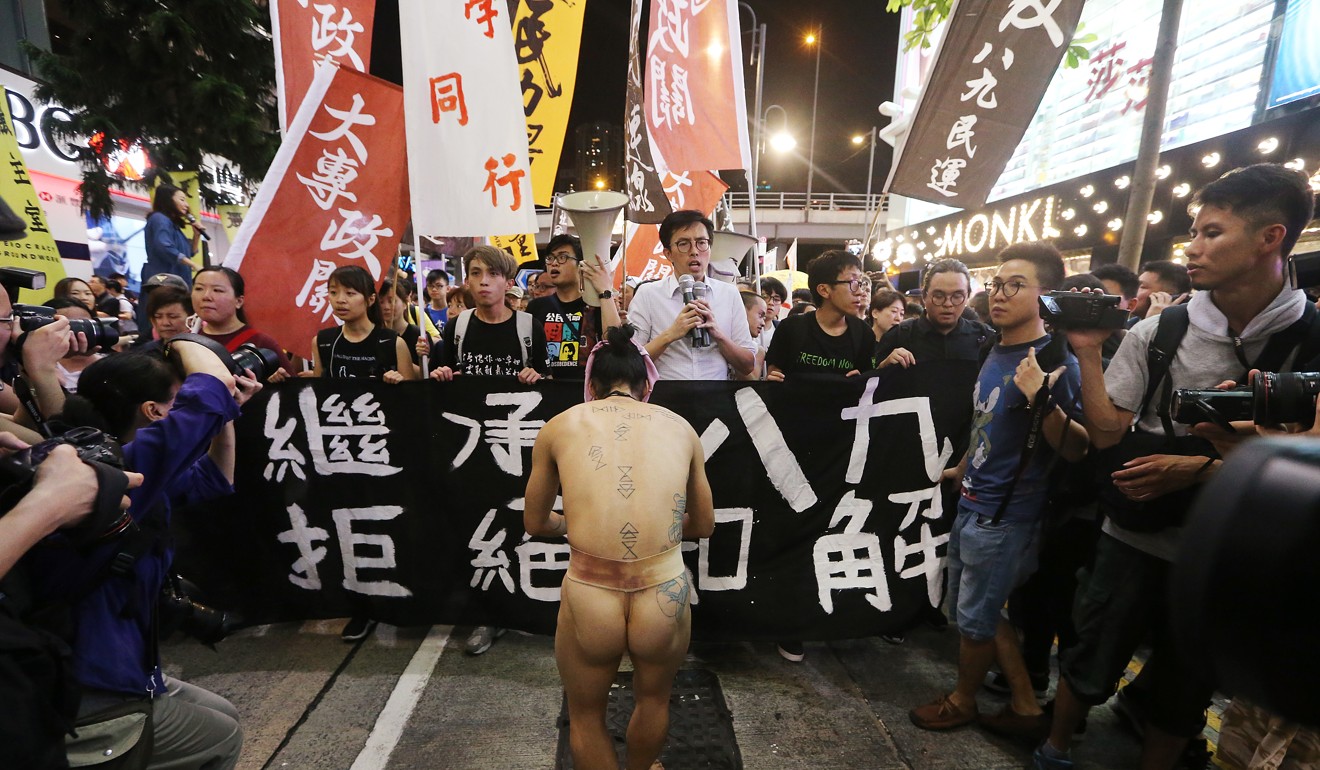
The group included 28 people who each lit a candle to remember the 28th anniversary of the crackdown.
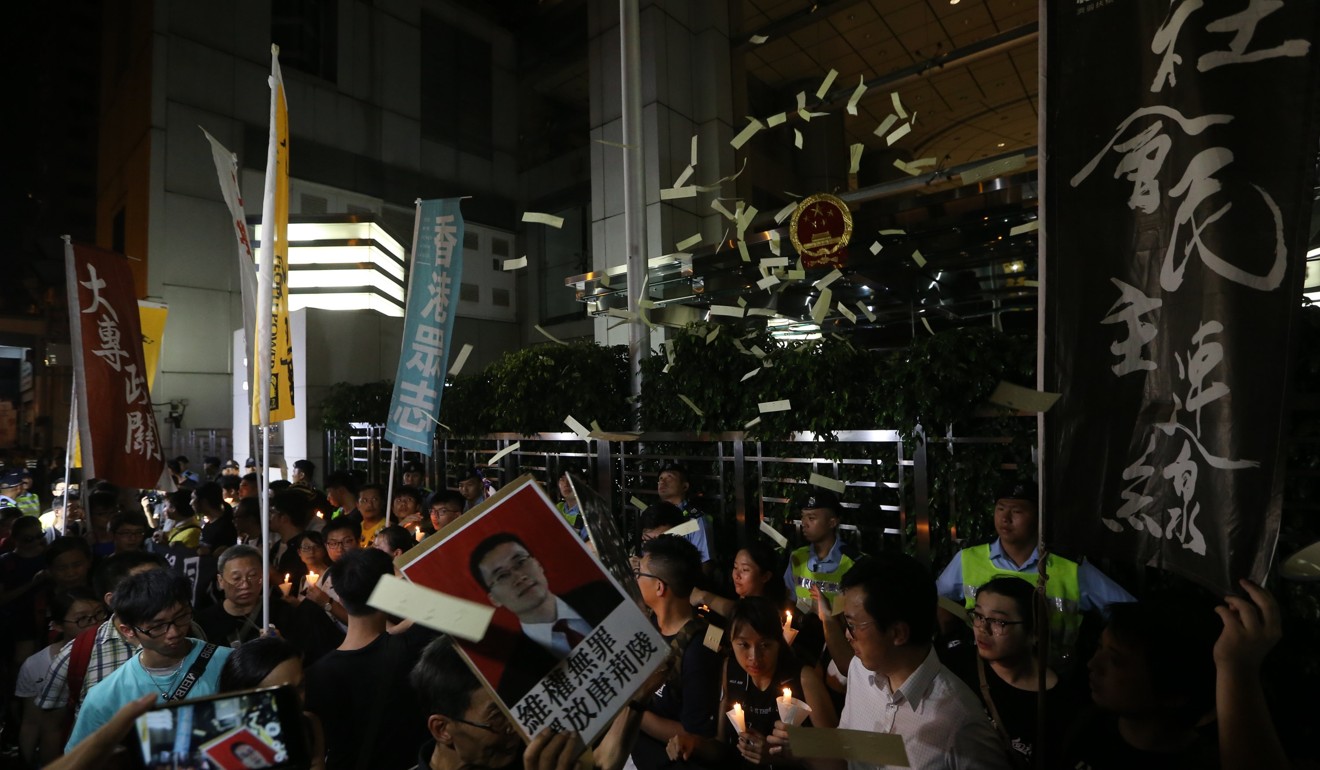
The other marchers then passed by the liaison office entrance to conclude the march, with some throwing “hell money” – a traditional Chinese offering to ancestors that is often used by activists to condemn officials.
The march participants dispersed without incident at about 12.50am.



